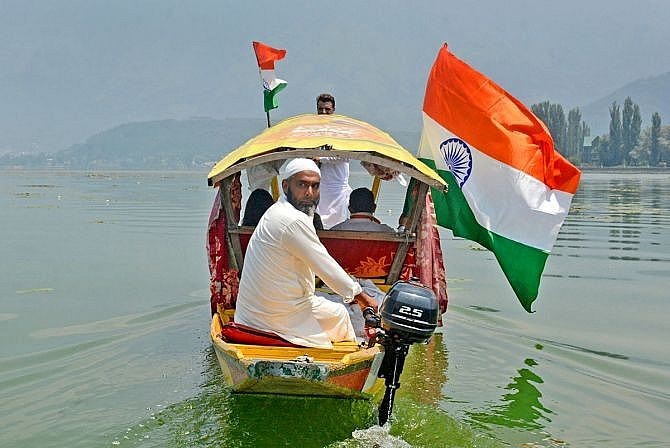Exploring The Impact of August 5, 2019 on Kashmir
 |
Six years long central rule is beginning to yield diminishing returns. Largely, because this arrangement, even if run efficiently, lacks legitimate representative character.
However, restoration of peace and normal routine of daily life, compared to the past, stands out as its most significant achievement.
It is after a long time that various spheres of public and social life in the state, in general, and the Valley in particular, are back to normal routine without disruption. Sense of relief on that account is palpable. But, at another level, that is not enough nor a substitute for a normal democratic setup at the helm.
Denial of popular, representative power structure for too long has its own inherent negative implications.
Not only in Kashmir and Jammu regions but also in (separated) UT Ladakh region too law of diminishing returns is becoming more palpable with each passing day.
Whenever the assembly polls are held, its outcome would essentially be the first popular verdict on the Centre’s drastic action on the political constitutional front taken four years ago.
And that would also be the test bed for gauging the political muscle of the atrophied contenders like NC, PDP and the Congress.
For BJP, playing with highest ever stakes in J&K, the poll outcome is of crucial significance. It is leaving nothing to chance. Inexplicable delay in holding the assembly elections is ascribed to the BJP’s hesitation in taking the fateful plunge.
But, in the process, the BJP’s underbelly is also getting exposed. Hesitancy in taking the electoral plunge, even after drastic ‘engineering’ in administrative, constitutional and electoral spheres is anything but a promising sign of its self-confidence.
After the completion of the radical delimitation of assembly and parliamentary constituencies last year it was expected that the assembly elections would follow sooner than remain later.
False indications continue to appear from time to time, but as of now the general perception is that the BJP is unsure of its own strength.
Its deep longstanding desire to come to power in Muslim-majority J&K, for obvious reasons, is too transparent to hide.
This, more than any other factor, is believed to be the actual reason for prolonging the existing arrangement and delaying assembly polls.
Ironically, this hesitancy is yielding diminishing returns, going by the perceptible ground reality.
These fears about the BJP’s ‘intentions’ tend to get accentuated with belated changes in the structuring of the new legislative set-up.
Perhaps because 2023 happens to be a pre-election year at the national level highlighting this mega political achievement makes understandable sense for the party in power.
Huge billboards have come up in the two state capitals, Srinagar and Jammu, ‘celebrating abrogation of Article 370’.
Even though this move is not in consonance with well known popular sentiment in Kashmir the state administration has thought it fit to go ahead with it.
Proceedings in the apex court provide an interesting parallel with its live telecast attracting sizeable viewership across social media.
The post Exploring The Impact of August 5, 2019 on Kashmir appeared first on Vietexplorer.com.
Comments
Post a Comment